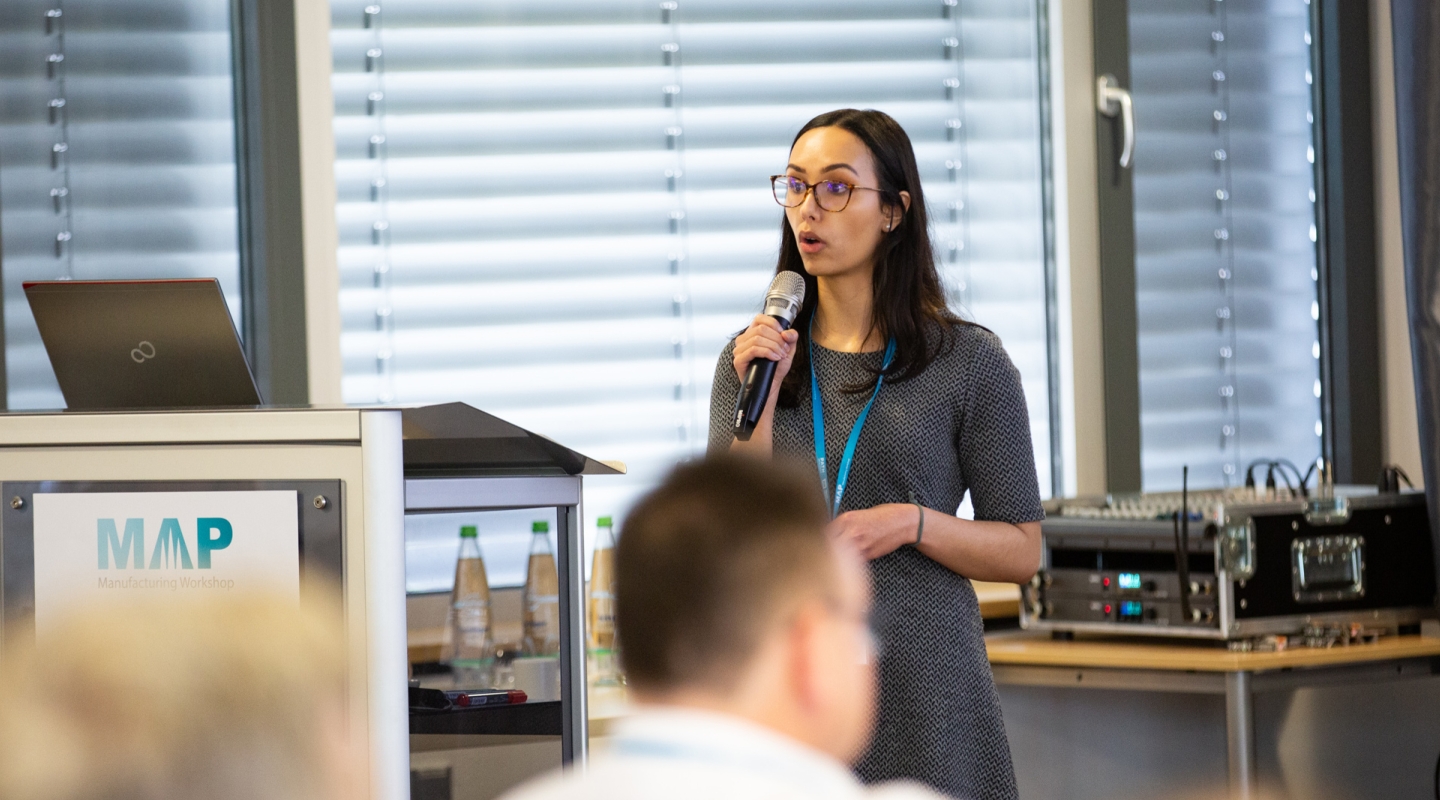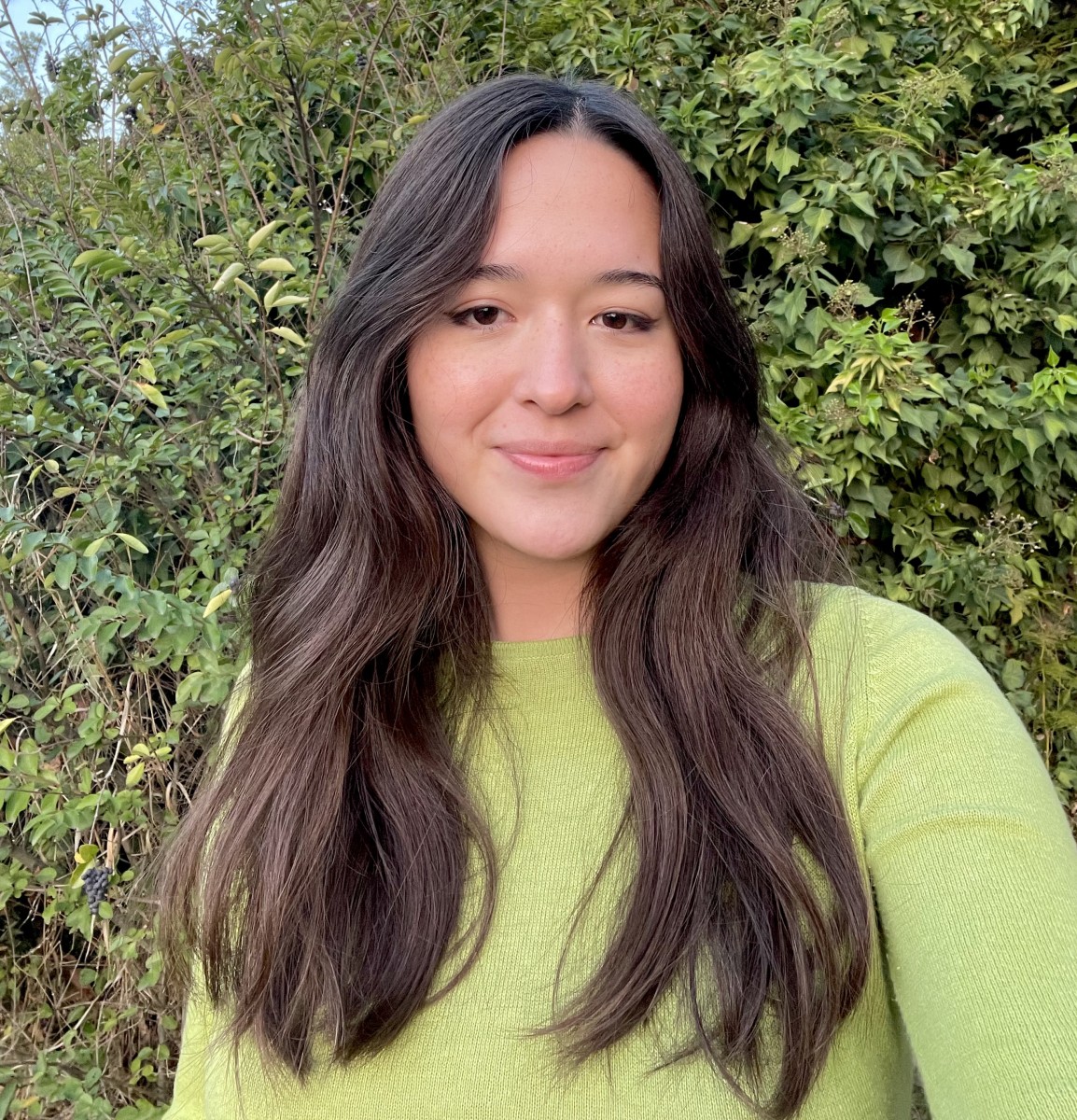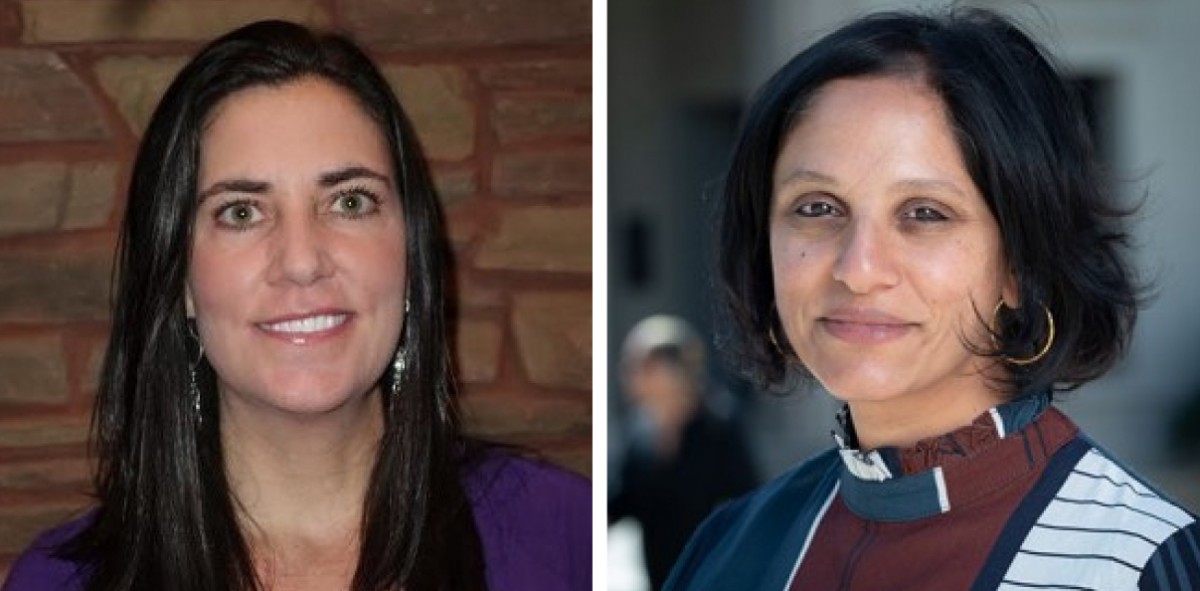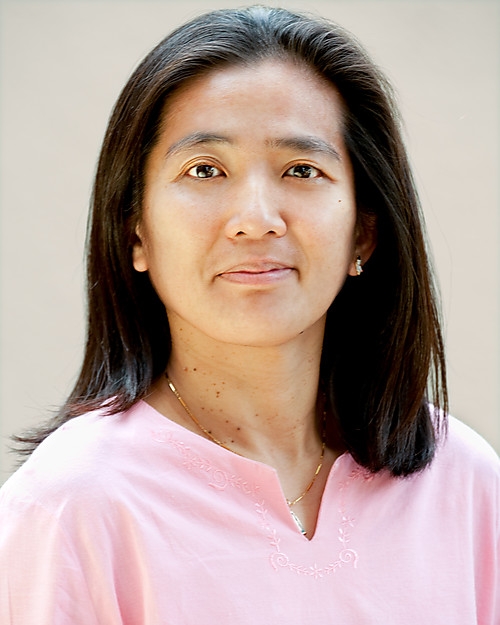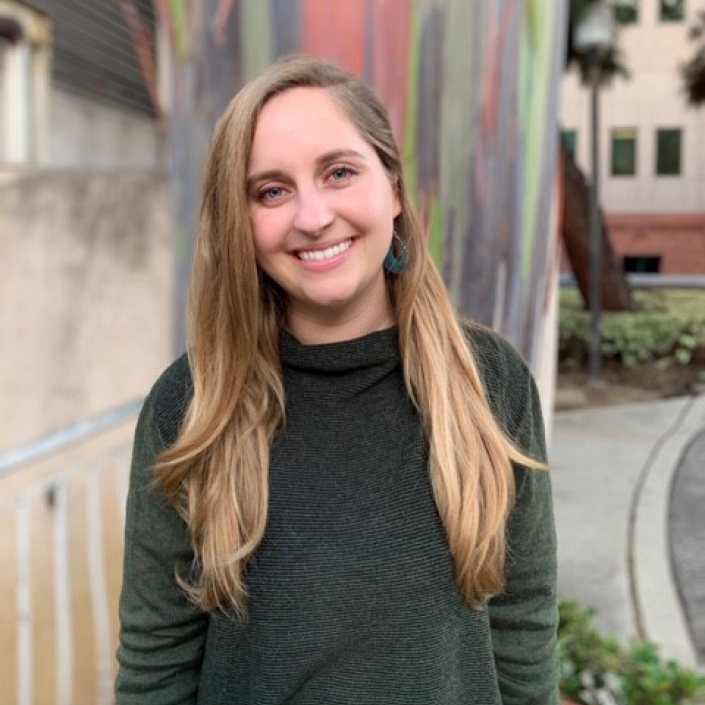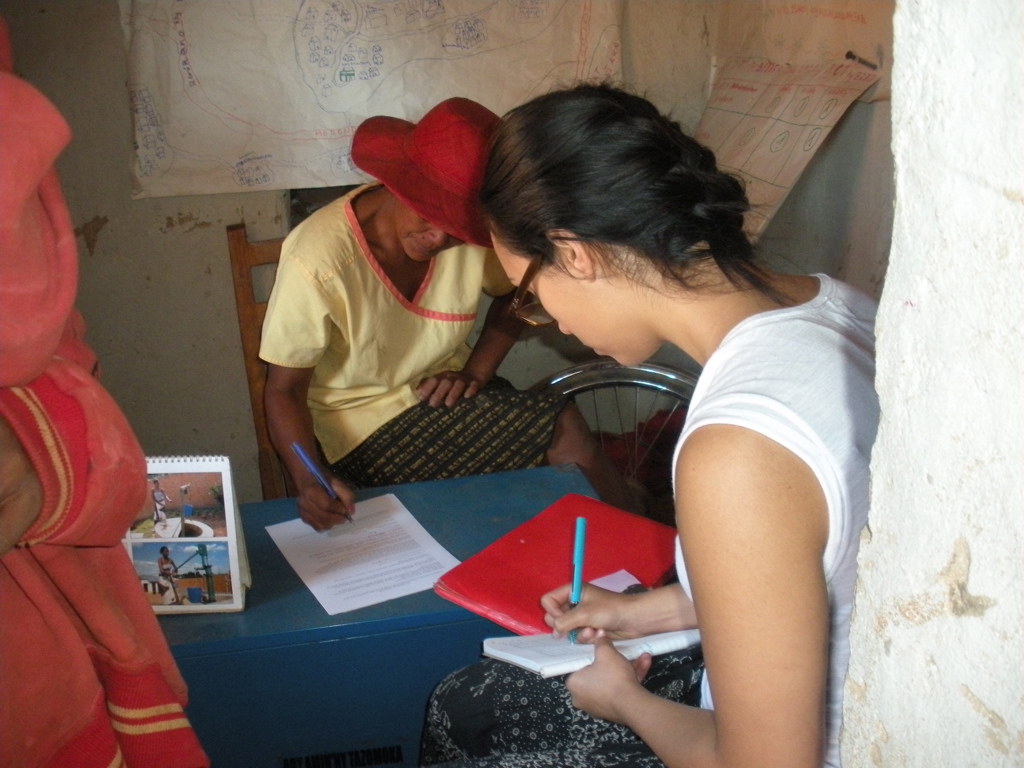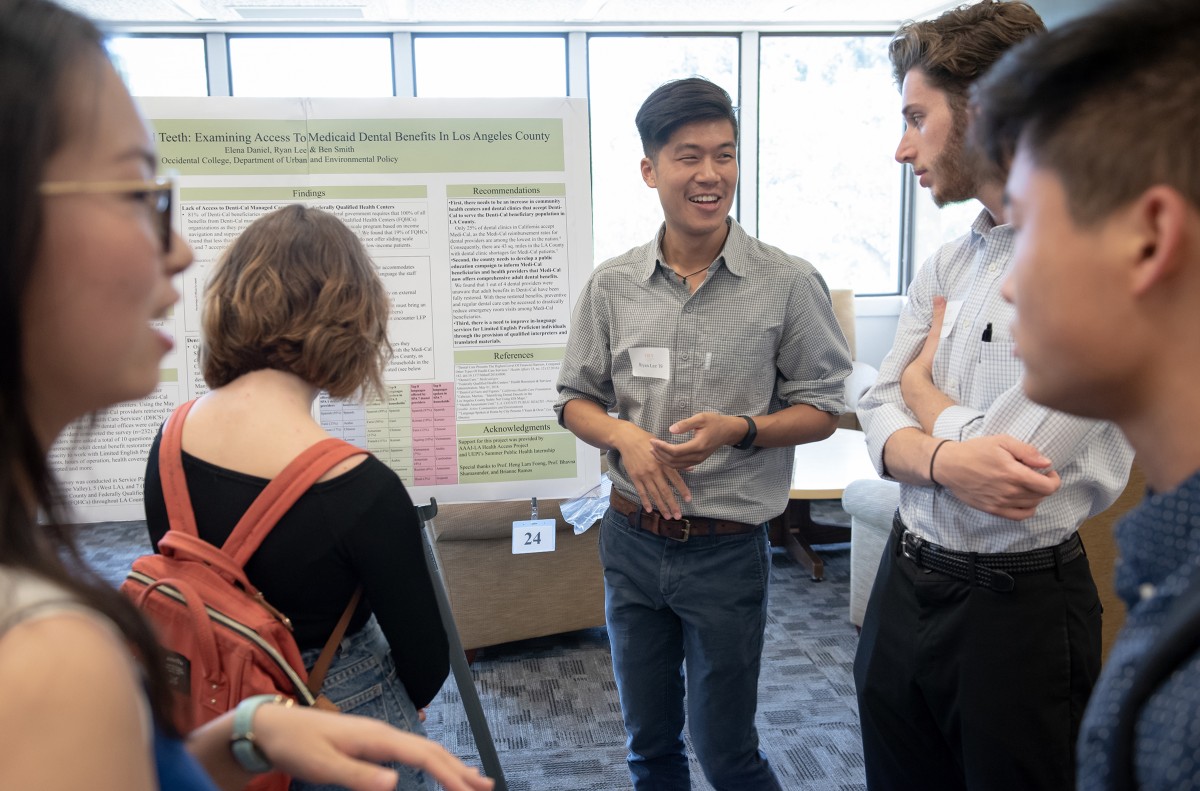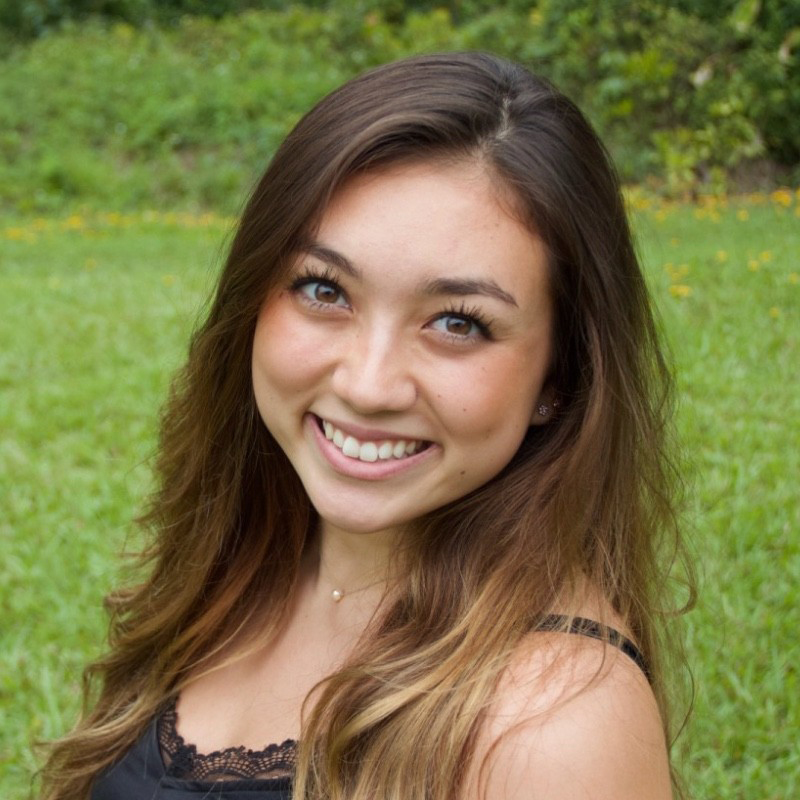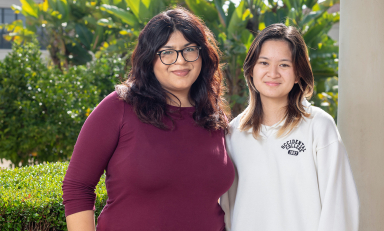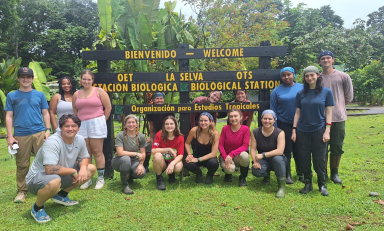Two years into the COVID-19 pandemic, public health remains at the center of the global discourse—but Oxy faculty and students have been engaged in the conversation far longer
Coming to Oxy, Shanna Yeh ’22 wanted a career in health and thought being a nurse or doctor was the only way to achieve that. After a summer internship at the Saban Community Clinic in Los Angeles, where she worked in the operations department implementing new programs and looking for ways to enhance patient experience, she had an epiphany.
“There are so many jobs in the realm of public health that tap into some of my different strengths,” says Yeh, a biology major and public health minor from Gaithersburg, Md. After Oxy, she hopes to find a job working in community health and eventually plans to pursue a master of public health (MPH) degree.
Yeh is one of 26 seniors expected to graduate this spring with a minor in public health, which Adjunct Assistant Professor Jessica Dirkes defines as “the science of protecting and promoting the health of populations, people, and communities.” Public health provides a framework to examine often divisive topics such as climate change and gun violence, she adds, and address those issues using research and evidence.
Oxy’s public health minor came to be in the most liberal arts fashion, with faculty and students across multiple disciplines coming together to create a program they believed needed to be offered to students. The Urban and Environmental Policy Department introduced Public Health: Community and Environment to the curriculum during the 2001-02 academic year. The course was taught by Andrea Hricko, professor emerita of preventive medicine at USC Keck School of Medicine—a longtime friend of then-Urban and Environmental Policy Institute Director Robert Gottlieb, the Henry R. Luce Professor of Urban and Environmental Studies Emeritus.
About a decade ago, faculty members took action in response to growing interest from students in public health, and UEPI secured funding from the Kaiser Foundation to develop the minor under the leadership of adjunct faculty Heng Lam Foong, who served as program director at UEPI from 2009 to 2017. Along with Foong, Jessica Welty ’13, then a junior, was hired through the Kaiser grant to work on the development of the minor.
In putting together the curriculum, through research on public health minors across the country, Oxy faculty framed the backbone of the minor with three core courses: Introduction to Public Health, Epidemiology, and Statistics. Additionally, they formulated a list of electives from multiple departments that students could take to fulfill their interests within the broad topic of public health. (This year, students can choose from 16 electives; five courses are required to complete the minor.)
Following its launch in December 2013, the public health minor was run by Bhavna Shamasunder, associate professor of urban and environmental policy, with the help of a pair of professors from the Biology and Kinesiology departments. To not only sustain but grow the minor, however, she knew more help was needed. With the backing of Wendy Sternberg, vice president of academic affairs and dean of the College, a full-time public health faculty position was approved, and Dirkes was hired in fall 2019 as Public Health Program coordinator and co-chair.
Prior to teaching and working in higher education, Dirkes practiced public health for 10 years, focusing mainly on HIV prevention and health education. A Ph.D. graduate of the University of Illinois at Chicago in public health and community health, she focuses her teaching on public health “as it applies to concepts of social justice so that we approach it as finding ways to effectively address health inequity.”
Dirkes—who teaches Introduction to Public Health, Epidemiology, and Women’s Health—is excited that students from many different majors bring their own perspectives to the classroom, making for rich discussions. “People don’t exist in isolation,” she says. In understanding the context for the decisions people make with regards to their own well-being, “Public health can help us be more empathetic.”
Much of the credit for developing the public health curriculum must go to Foong, who launched UEPI’s Community Health Engagement program in 2011. With funding support from Kaiser Permanente, Oxy was able to create and expand public health opportunities for students through course work, community engagement, and independent study.
Prior to joining the College, Foong worked for a pair of nonprofits on such public health issues as equitable access to healthy food, clean tap water, and neighborhood parks, as well as access to healthcare for individuals with limited proficiency in English. (Foong, who is currently program director of the Asian Pacific Islander Forward Movement, continues to teach at Oxy as an adjunct instructor.)
Given Foong’s background in community work and the focus of UEPI on community engagement, community health engagement was a key focus in shaping the minor. This focus came to fruition in January 2013 when Foong and Welty established the Public Health Practicum course (UEP 307), in which students intern with community partners and reflect on their experiences in class.
When connecting with community partners, “Reciprocity was key,” Foong notes. “We wanted to be sure that having Oxy interns would support the organization and then we identified the learning outcomes for the students. Many of these partners remain with us.”
In the Public Health Practicum, Foong ensures that her students take an asset-based approach to community engagement: “We’re not going in the communities to fix—we’re going there to learn and be a part of the solution.” She believes this approach is one of the most important takeaways of the course—one that students can only learn by stepping out of the classroom and into communities.
Verónica Ponce de León ’13 decided to pursue a career in public health after taking Foong’s practicum course. Foong “really helped me understand that the public health field is much broader than I expected,” says the Downey resident, who majored in biology with a minor in urban and environmental policy.
During her Richter Research Abroad fellowship in Peru, Ponce de León discovered a passion for environmental health. Subsequently, she pursued an MPH with a concentration in occupational health at UC Berkeley. “Oxy is a great place to explore the public health field,” says Ponce de León, who has worked with UCLA’s Labor Occupational Safety and Health Program since 2019. She recently started a new position managing a program to help domestic workers stay safe on the job and understand their rights.
After graduating from Oxy with a biochemistry major and public health minor, Tyler Wilson ’16 completed a post baccalaureate premed program at UC San Diego in 2017. Now a fourth-year medical student at Drexel University in Philadelphia, he plans to specialize in emergency medicine after completing his M.D. He shares Ponce de León’s enthusiasm for the practicum course and Foong’s mentorship: “She was really the reason I enjoyed the public health minor.”
Wilson notes that his public health studies have taught him how to zoom out from only addressing the problem patients come in to be treated for and look at strategies to keep the patient healthy and out of hospitals. His community work at Foothill Unity Center and ChapCare Clinic through Oxy made him cognizant of the barriers individuals in underserved communities can face in regards to healthcare and access. Instead of telling someone who can only afford fast food to eat less fried food, he understands the importance of pointing the patient to resources that give them access to more options. “What I learned in public health at Oxy has made me a much better med student, and hopefully a much better physician in the future.”
Collrane Frivold ’15’s passion for public health began in Madagascar. As a Richter Fellow following her sophomore year at Oxy, she conducted research in the African island country on the storage and transport of malaria rapid diagnostic tests. “Before this project, I didn’t really know what public health was,” recalls Frivold, a biochemistry major from Seattle.
Frivold began taking public health courses before the establishment of the minor, fitting them in as her schedule permitted. In her master’s program at the Johns Hopkins Bloomberg School of Public Health, she encountered topics she had already studied as an undergrad, which helped her to keep up with the fast-paced master’s courses and dive deeper into the topics. (Johns Hopkins even used the same epidemiology textbook Frivold had studied at Oxy.)
After working at PATH, a nonprofit global health organization, for three years, Frivold entered into the epidemiology Ph.D. program at the University of Washington. After completing her doctorate, she plans to bring together all of her professional and academic experiences to continue working on projects to improve immunization coverage and equity.
As one of the first Oxy students to graduate with the public health minor, Frivold is heartened to see the program’s growth. “I’m glad to see that there are more courses,” she says, “and that there are faculty who are dedicated to public health.”
Two years into the country’s greatest public health crisis in 100 years, this is a unique time to be studying public health—a fact that isn’t lost on Dirkes. “If there's any silver lining to the pandemic, it’s that it is definitely drawing people into the field who maybe wouldn't have thought of it before, who realize how much work there is to do, and how much talent we need” in combating future pandemics, she says.
As Shamasunder sees it, now is the perfect time for the College to support the continued growth of the public health minor, which would include funding more internship opportunities. “One unique thing about Oxy’s public health minor is that it started from a really strong sense of community engagement,” she notes. And community engagement has been a crucial ingredient in setting students up for success after Oxy.
One current student benefiting from the growth of the minor is Emily Kapins ’22, a psychology major and public health minor from Honolulu. Kapins spent last summer working on the Koreatown Youth and Community Center’s Project Break Free, a tobacco control project that seeks to implement comprehensive smoke- and tobacco-free policies at college campuses and trade schools in the L.A. area.
After Oxy, Kapins plans to pursue an MPH in social and behavioral science so that she can work on mental health in disadvantaged communities, an opportunity she admits she wouldn’t have thought of if it weren’t for her minor.
Reflecting on the timing of her public health studies, Kapins admits, “The chances of learning about a pandemic, and then experiencing it, are very low—but apparently not impossible.”
Kia Mackey ’22 is a biology major and public health minor from Edmonds, Wash. She wrote “The Excitement Is Back” in the Spring 2021 issue.
Top image: Collrane Frivold '15 presents at a manufacturing workshop co-hosted by PATH with the German packaging company Harro Höfliger.

